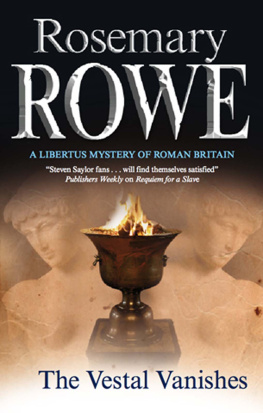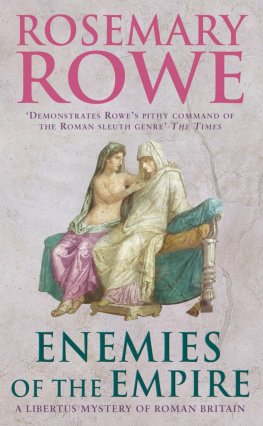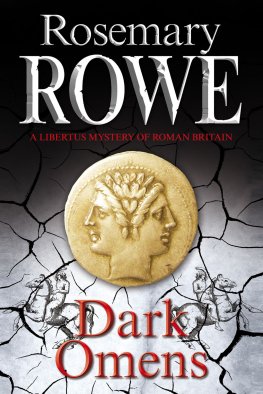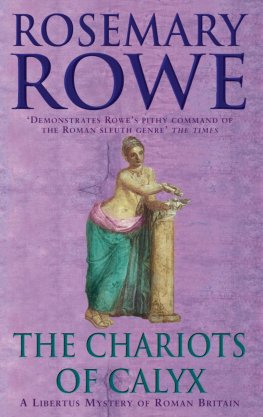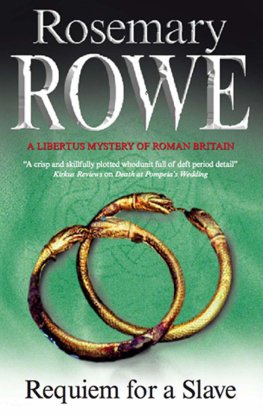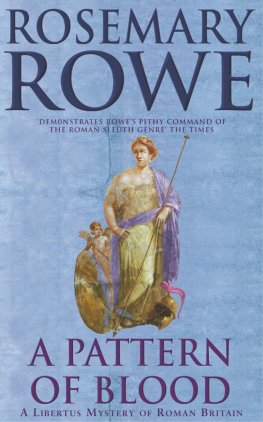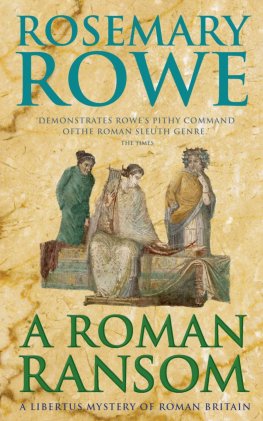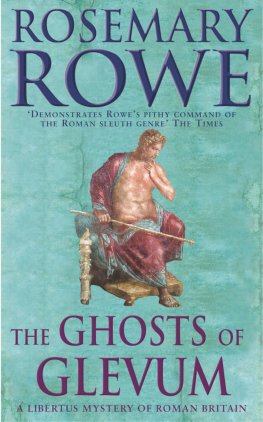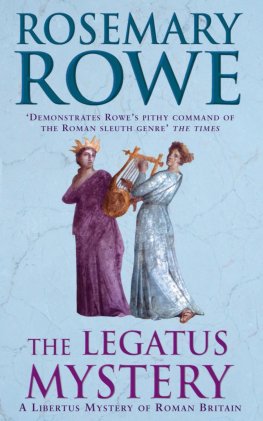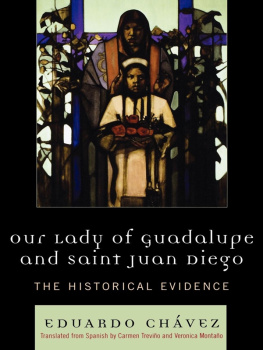Previous Titles in this series by Rosemary Rowe
THE GERMANICUS MOSAIC
MURDER IN THE FORUM
A PATTERN OF BLOOD
THE CHARIOTS OF CALYX
THE LEGATUS MYSTERY
THE GHOSTS OF GLEVUM
ENEMIES OF THE EMPIRE
A ROMAN RANSOM
A COIN FOR THE FERRYMAN
DEATH AT POMPEIAS WEDDING *
REQUIEM FOR A SLAVE *
*available from Severn House
THE VESTAL VANISHES
A Libertus Roman Mystery
Rosemary Rowe
This eBook is copyright material and must not be copied, reproduced, transferred, distributed, leased, licensed or publicly performed or used in any way except as specifically permitted in writing by the publishers, as allowed under the terms and conditions under which it was purchased or as strictly permitted by applicable copyright law. Any unauthorised distribution or use of this text may be a direct infringement of the authors and publishers rights and those responsible may be liable in law accordingly.
This first world edition published 2011
in Great Britain and the USA by
SEVERN HOUSE PUBLISHERS LTD of
915 High Street, Sutton, Surrey, England, SM1 1DF.
Copyright 2011 by Rosemary Aitken.
All rights reserved.
The moral right of the author has been asserted.
British Library Cataloguing in Publication Data
Rowe, Rosemary, 1942-
The vestal vanishes. (A Libertus mystery of Roman Britain)
1. Libertus (Fictitious character : Rowe) Fiction.
2. RomansGreat BritainFiction. 3. SlavesFiction.
4. Vestal virginsFiction. 5. Great BritainHistory
Roman period, 55 B.C.-449 A.D. Fiction. 6. Detective and
mystery stories.
I. Title II. Series
823.92-dc22
ISBN-13: 978-1-78010-067-8 (ePub)
ISBN-13: 978-0-7278-8029-1 (cased)
ISBN-13: 978-1-84751-348-9 (trade paper)
Except where actual historical events and characters are being described for the storyline of this novel, all situations in this publication are fictitious and any resemblance to living persons is purely coincidental.
This ebook produced by
Palimpsest Book Production Limited,
Falkirk, Stirlingshire, Scotland.
FOREWORD
T he story begins in Glevum (Roman Gloucester, a prosperous republic and a colonia for retired soldiery) during late August 191 AD, at the birthday feast of the Emperor. Attendance at this feast and appropriate sacrifice Commodus had pronounced himself to be a living deity and the reincarnation of the god Hercules was compulsory for every citizen, though it is doubtful that many seriously believed he was a god. (The compulsion was real enough: St Peregrine was arrested, tortured and finally martyred in Rome, not for being a Christian that was not, of itself, at this period a crime but for publicly opposing this birthday sacrifice.)
The Emperor was by this time increasingly deranged, and his lascivious lifestyle, capricious cruelties and erratic acts were infamous. He had renamed all the months, for instance, with names derived from his own honorific titles (which he had in any case given to himself) and, after rebuilding a portion of the city following a fire, announced that Rome itself was henceforth to be retitled Commodiana. Stories about him barbecuing dwarves and having a bald man pecked to death by sticking birdseed to his head are (probably) exaggerated, but the existence of such rumours gives some indication of the man. However, he clung tenaciously to power and, fearing (justifiably) that there were plots against his life, he maintained a network of spies throughout the Roman Empire.
Britannia had been part of that Empire for two hundred years by now; the most far-flung and northerly of all its provinces, but still occupied by Roman legions, criss-crossed by Roman roads, subject to Roman laws, and administered by a provincial governor answerable directly to Rome (most probably Clodius Albinus at this period, although the date of his appointment is open to debate). Latin was the language of the educated, people were adopting Roman dress and habits, and citizenship, with the precious social and legal rights which it conferred, was the aspiration of almost everyone. But then, as now, there were small groups of dissidents who refused to yield. Although most of the quarrelsome local tribes had long since settled into peace, there were still sporadic raids (mostly against military targets) by small bands of Silurians and Ordovices from the west, who had never forgotten their defeated leader, Caractacus, and his heroic two-year resistance to Roman rule. The army had taken steps to suppress this discontent (creating special marching camps, where legionary and auxiliary forces were kept in tented camps ready to move quickly against insurgent groups), but there were still occasional forays, although at this date there is no record of any occurring as far east as the action in this story suggests.
However, it is well-attested that these rebellious Celtic bands were often associated with Druid practices perhaps as an act of additional defiance against Rome, since the religion was officially proscribed. (Unlike Christianity, Druidism had been outlawed for some time, because of the cult of the severed human head, and adherence to the sect was technically a capital offence.) Stories were circulated of its gruesome practices: the sacred groves adorned with severed heads of enemies, the wicker man-shapes filled with human forms and torched, and the use of living human entrails as a divination tool. This suppression of the cult served to drive it underground and secrecy soon added myth to mystery. In the popular imagination the old nature-worshipping religion quickly became a fearsome thing, associated with witchcraft and sorcery as the text suggests.
This is the background of religious and civil discontent against which the action of the book takes place. Glevum (modern Gloucester) was an important town: its historic status as a colonia for retired legionaries gave it special privileges and all freemen born within its walls were citizens by right.
Most inhabitants of Glevum, however, were not citizens at all. Many were freemen, born outside the walls, scratching a more or less precarious living from a trade. Hundreds more were slaves what Aristotle once described as vocal tools mere chattels of their masters, to be bought and sold, with no more rights or status than any other domestic animal. Some slaves led pitiable lives, but others were highly regarded by their owners, and might be treated well. A slave in a kindly household, with a comfortable home, might have a more enviable lot than many a poor freeman struggling to eke out an existence in a squalid hut.
Of course, the worst fate of all was to be born with some disability. There was no provision for a person who could not compete. Deformed or weakly children were exposed at birth, but some problems (such as deafness, as in this story) were not immediately manifest and therefore law permitted a father to dispose of a defective child, perfectly legally, until it was three years old. If for some reason (like Paulina in the story) such a child continued to survive past this age it was regarded as a moral lunatic with no rights at all in law, not even to inherit when a parent died.
Power, of course, was vested almost entirely in men. Although individual women might inherit large estates, and many wielded considerable influence within the house, daughters were not much valued, except as potential wives and mothers, whereas sons were the source of pride. Indeed, a wife of a rich man who produced no surviving male might well be divorced, although as suggested in the tale something resembling haemophilia, (which exclusively affects the males) was clearly present in the population at this time, making the afflicted mothers lives doubly tragic. Marriage and motherhood were the only realistic goals for well-bred women, although trademens wives and daughters often worked beside their men and in the poorest households everybody toiled. But females were rarely educated, except in household skills, they were excluded from public office, and a woman (of any age) was deemed a child in law.

